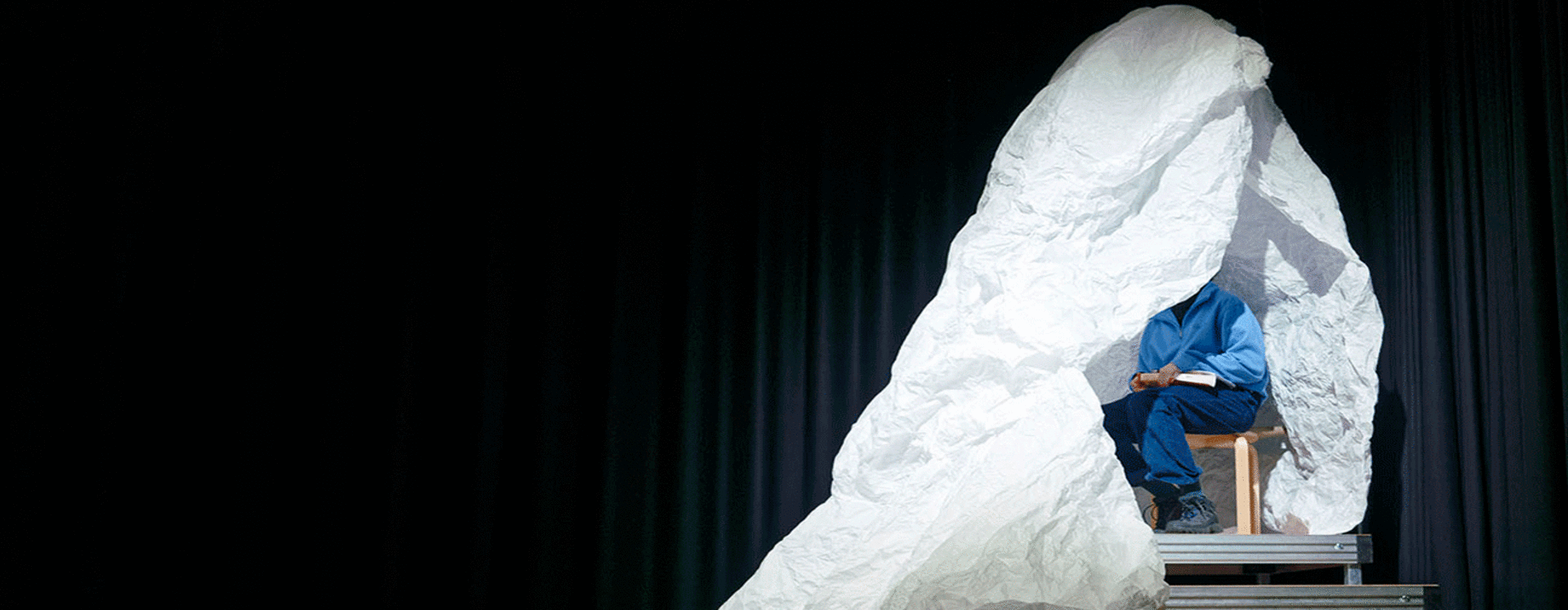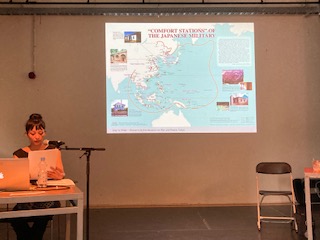Symposium Archival Interactions: Performing Intersectional Counter-Archives
30 June 2022
Hosted by DAS Research at the Academy for Theatre and Dance, the symposium was the culmination of a series of six meet-ups that Eliza Steinbock organized between Feb 2020 and Oct 2021, called “Archival Interactions: Artists and Archivists for Intersectional Research.” explore These meetings were interactions characterized as art meets scholarship meets the archives. They were organized within the NWO Smart Culture consortium project “The Critical Visitor: Intersectional Approaches for Rethinking & Retooling Accessibility and Inclusivity in Heritage Spaces” (2020-2025) led by Steinbock, together with Hester Dibbits (Reinwardt/Erasmus) and Dirk van den Heuvel (TU Delft/HNI). DAS Research and RCMC are consortium partners and were highly present throughout this sub-project of the Critical Visitor.
The expert meetings aimed at providing a platform for scholars, artistic researchers and archive workers who were invested in their practices to critique or dismantle mechanisms of exclusion or violent inclusion.
The symposium program was crafted to further consider dimensions of performance and performativity in archival interactions: namely, interactions between and among archivists & records; scholars & documents; artists & archival scraps; artists & archivists; archives & counter-archives. In these interactions, we explored which affects are elicited. And what kinds of knowledge is produced. For many, performance remains fundamentally anarchic – defined by ephemerality in ways that place it in an inevitably antagonistic relationship to the archive. We also gave critical consideration of the notion of being ‘counter to’ an institutional archive. We investigated whether one can be ‘counter’ in the post/de/colonial, and whether colonial archives can be mobilized in a counter archival frame. We asked where does intersectionality arise in marked and unmarked ways. We considered how, as an approach to institutional archives and archival activism, intersectional thinking might scramble the order of things.
In three sessions, what the day’s events unfolded to include academic and increasingly performative interventions into archives and archival studies. The first session Intersections of Archival Inclusion addressed questions of belonging in archives, and developed methods for reclaiming silences in institutional archives and reading them in an intersectional manner. Case studies range from queer activist archives, to those on design (and architecture) history in Asia and the Netherlands. The presenters were Hannah Dawn Henderson & Setareh Noorani, Gianmaria Colpani, Noah Littel, and Sara Arshad & Viven Chan. The second session Asterisked Archives asked what do we do with archival documentation that concerns unfree and violated bodies, a history that can be submerged in the built environments of a factory and a home, or highly graphic in remembrance stories of the struggles of women forced into sexual service for the military (‘comfort women’). The methodological approaches to these legacies of racial-sexual violence drew on affective methods, experimental restoration, as well as reading with the grain. The presenters were Robert Flahive, Roberta Kanan Burchardt, and Nine Yamamoto-Masson. The third session Creative Disordering of Archives leaned away from empirical practices of history, tilting towards a speculative relationship to history that embraces creativity as a necessary mode to outplay the paradigm of archival obliteration and harm. The presentations engage embodied methods of walking, performing, dancing, and live filming to access and invent archives for marginalized and invisibilized pasts. Presenters were Chandra Frank, Bianca Mayasri Figl and Joseph Steele & Janilda Bartolomeu. In the last session, sadly, due to Covid, Anika Marshall’s presentation on Performing a Counter-archive of German Music and Entertainment History was cancelled.
We also had to make a last-minute adjustment due to Covid for the closing keynote performance from performance scholar and sound artist dr. meLê yamomo, as his performing partner Layan Nijem was unable be present.
meLê yamomo set the stage with a small make-shift kitchen that was miked. He performed the preparations for a dish while screening a 35-minute video entitled ‘When a lover says “I love you” is it the words or is it the sayer that matters? Or, Is decoloniality an academic drag?’. The sound experience was amplified by the use of 3-D headsets. The performance was followed by a “talk show” conversation with Dr. Barbara Titus on his artistic projects and the decolonial work that they do together about the Southeast Asian sound archive. Laura Cull and Eliza Steinbock also joined this very generative plenary discussion, to brought forward crucial reflections on the emerging themes and issues from the day.
The event was organized by Eliza Steinbock Associate Professor of Gender and Diversity at Maastricht University’s Faculty of Arts and Social Sciences, together with DAS Research, who hosted at the Academy for Theatre and Dance, Amsterdam University of the Arts, and the following from Nationaal Museum van Wereldculturen and their internal Research Centre for Material Culture, Wayne Modest, Director of Content, Esmée Schoutens, Research Associate, and also Alessandra Benedicty-Kokken who is a senior researcher and research coordinator at RCMC.
Our exceedingly gracious hosts were Laura Cull Ó Maoilearca Head of DAS Graduate School, Marilixe Beernink, project leader and management support, and the symposium had originally been conceived with Sher Doruff who was the former head of the THIRD program at DAS Graduate School.





